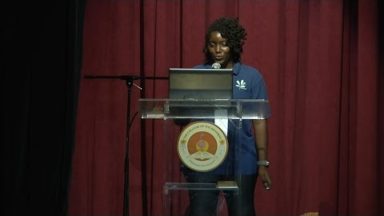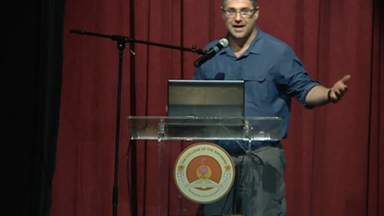Elevated metabolism, limited stamina: ecological implications of elevated CO2 on a key grazer
Presented by Aaron Shultz
Aaron Shultz, Zachary Zuckerman, Georgiana Burruss, Philippa Bayford, Dominic Ruddok, Kelly Hannan, Michael Bowleg, and Jocelyn Curtis-Quick
Ocean acidification has been identified as a threat to coral reef communities in subtropical and tropical regions. Studies have indicated that fish may have positive, negative, or neutral physiological responses to elevated pCO2, and these responses are likely species-specific. More recently, research has indicated that elevated pCO2 has a pronounced effect on the behavior (e.g., predator evasion) of many coral reef fish. Very little research has addressed how grazers, key to coral reef health, may respond to acidified seawater predicted to occur as the climate changes. The purpose of this experiment was to assess the feeding behavior, swimming performance, and metabolic responses of parrotfish exposed to elevated pCO2. To do this, striped parrotfish (Scarus iserti) were acclimated to ambient sea water at 8.2 pH (120 µatms), seawater manipulated to a pH of 7.9 (320 µatms), and seawater manipulated to a pH of 7.6 (710 µatms) over a 24 hour period and held in these conditions for 14 days. Elevated pCO2 resulted in higher metabolic rates relative to control fish, which may alter feeding activity. Fish chased until exhaustion traveled shorter distances and fatigued more quickly in elevated pCO2 relative to ambient conditions. These results indicate that parrotfish may need to consume more food to meet energetic demands and may be more susceptible to predation under elevated pCO2 conditions in the future. Grazing by parrotfish may be enhanced under future climate change scenarios, but their increased susceptibility to predation may offset their capacity to manage algal growth on coral reefs.







Recent Comments